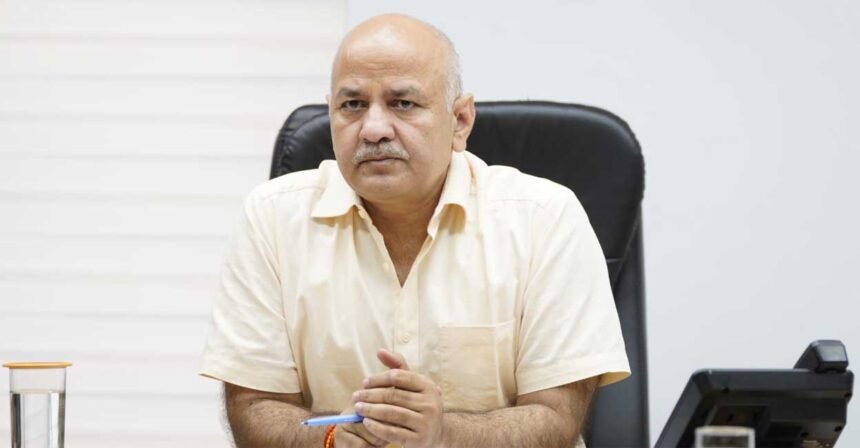The Delhi High Court has rejected the bail plea of former Delhi Deputy Chief Minister Manish Sisodia in a case related to an alleged scam in the city’s liquor policy. Justice Dinesh Kumar Sharma, presiding over a single-judge bench, dismissed the bail application, stating that the allegations against Sisodia are serious. Sources have revealed that Sisodia intends to approach the Supreme Court to challenge the decision of the high court.
The court’s verdict emphasized that Sisodia holds significant influence, and there is a possibility that witnesses could be influenced if he is released on bail. The Central Bureau of Investigation (CBI), opposing the bail plea, argued that granting bail would severely prejudice the ongoing investigation, as Sisodia fails to meet the requirements for bail. While personal liberty is crucial, it is subject to reasonable restrictions in the interest of the state and the public, according to the CBI’s response to the court.
The CBI contended that Sisodia has close ties with executive offices and bureaucrats, and his party colleagues have made factually incorrect claims to influence the investigation, portraying him as a victim of political vendetta. The agency pointed out statements made by members of the Aam Aadmi Party (AAP) in press conferences, suggesting that their efforts aim to shield the accused. The CBI expressed concern that such statements undermine the authority of the Special Judge and have the potential to influence and deter witnesses in the case.
Sisodia’s legal representation, Senior Advocate Dayan Krishnan, argued that the CBI lacks evidence to demonstrate his involvement in the alleged irregularities regarding the excise policy. The lawyer highlighted that all other accused individuals in the CBI case have been granted bail, except for Sisodia.
In his bail request, Sisodia maintained that the possibility of witness threats cannot be assumed without any material or antecedents to support such claims. He emphasized that the witnesses primarily consist of civil servants over whom he has no control, particularly since he has resigned from his official post.
Earlier, the Rouse Avenue Court in Delhi extended Sisodia’s judicial custody until June 1, based on the supplementary charge sheet filed by the CBI. The court instructed the prison authorities to consider providing Sisodia with a chair, table, and books inside the prison. The case investigated by the CBI pertains to alleged irregularities in the framing and implementation of the excise policy in Delhi. Sisodia is accused of formulating and implementing the policy in a manner that promoted monopolization and cartelization of the liquor trade.
The CBI has alleged that Sisodia admitted to destroying two mobile phones that he used before July 2022. The agency claimed that Sisodia used three mobile phones between January 1, 2020, and August 19, 2022, with the last handset being seized during the case investigation. Sisodia’s arrest by the CBI took place on February 26, more than six months after the FIR was registered.
It is important to note that Sisodia is facing accusations in cases lodged by both the CBI and the Enforcement Directorate regarding the alleged scam in the liquor policy.
